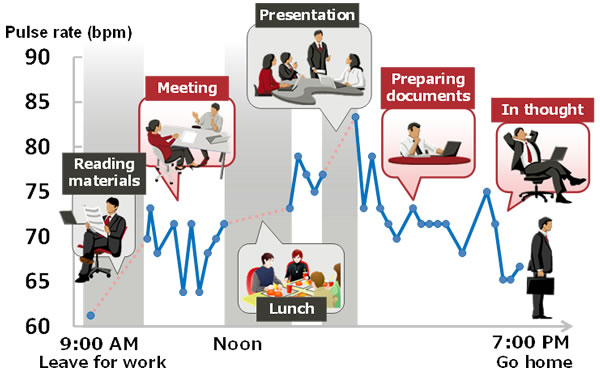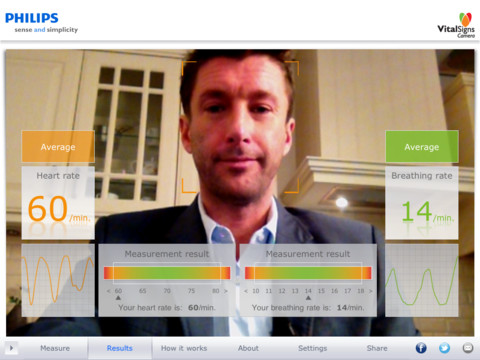Fujitsu announced the development of a technology, to be presented soon at the 2013 General Conference of the Institute of Electronics, Information, and Communication Engineers in Gifu, Japan, that detects a person's pulse using a smartphone or PC's built-in camera. The announcement generated a lot of buzz in technology publications.
If this sounds familiar to MobiHealthNews readers, it's because a host of other companies, mostly small app developers, but also Philips Healthcare, have been offering similar products for the last several years. The technology tracks natural color changes in the face, which are invisible to the naked eye, to determine heart rate. These changes occur as blood is pumped through the body.
Here are six mobile apps, in addition to Fujitsu's concept that all take instant pulse readings just by pointing your face at the camera:
Fujitsu's Pending Technology

Fujitsu's technology might not be as ground-breaking as the company's press release suggests, but at least they give a more detailed explanation for how it works than many other companies do.
"One characteristic of hemoglobin in blood is that it absorbs green light," the release says. "Based on this fact, Fujitsu Laboratories has developed a technology that detects a person's pulse by measuring changes in the brightness of the person's face as blood flows through it. The technology starts to work by shooting video of a subject and calculating average values for the color components (red/green/blue) in a certain area of the face for each frame. Next it removes irrelevant signal data that is present in all three color components and extracts the brightness waveform from the green component. The pulse rate is then computed based on the peaks in that brightness waveform. This technique can measure pulse in as little as five seconds."
Fujitsu also suggested that the technology could have applications besides allowing people to check their pulse easily on their phones -- by building it into security cameras, it could detect people who are unwell or acting suspiciously.

We reported on Philip's Vital Sign Camera back in 2011. At the time the app was only for iPad 2, but the company has since released a version for the iPhone 4S as well. In addition to monitoring pulse, the Philips Vital Sign camera also tracks respiratory rate by detecting small movements in the chest. In another update since we wrote the original story, Philips added the capacity to measure vital signs for two people at the same time. Philips disclaims on their site, as most of these apps do, that the app is for entertainment purposes only and not intended for diagnosis or clinical decision making. The app goes for $0.99 in the AppStore.


















